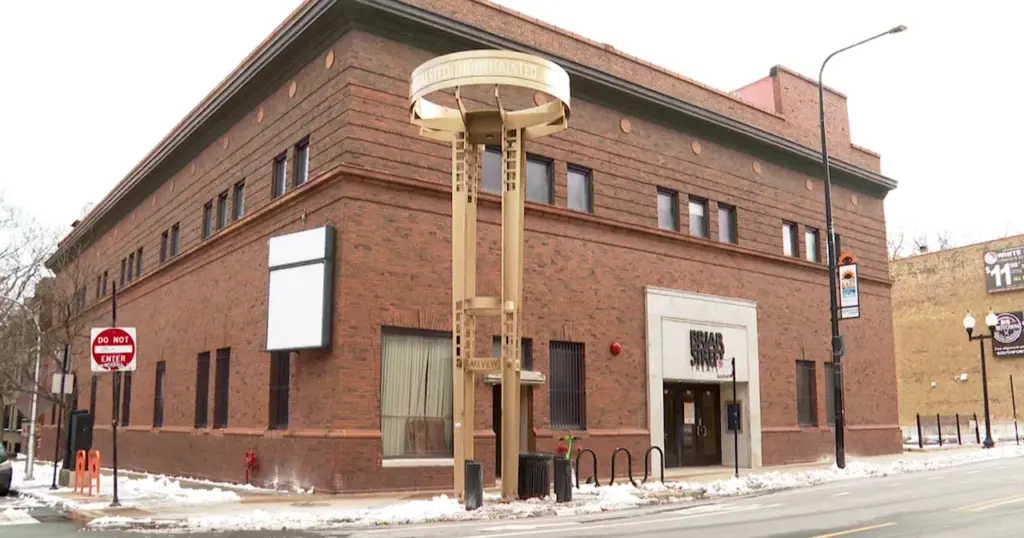
The Chicago theater scene is undergoing significant challenges as a number of long-standing venues close or face redevelopment. The latest casualty is the iconic Briar Street Theatre, which hosted the Blue Man Group for nearly three decades before the production’s final performance on January 1, 2025. Located at 3133 N. Halsted St., the theater was known primarily for hosting the vibrant blue performers, but has a rich history that includes performances of Driving Miss Daisy and Neil Simon’s Laughter on the 23rd Floor. Plans for the site now include a mixed-use development with residential units.
Not far from Briar Street, the Theatre Building, which opened in 1977, has also seen better days. Renamed Stage 773 after a buyout in 2010, the venue is now slated for demolition to make way for more housing. This theater was an incubator for small companies and hosted over 800 plays, contributing to the rich tapestry of Chicago’s theatrical history.
Another significant venue, the Royal George Theatre, located at 1641 N. Halsted St., has met a similar fate. After closing during the COVID-19 pandemic, the theater is set to be replaced by a nine-story apartment building. Known for productions like Forever Plaid and Late Nite Catechism, the Royal George was a beloved space for both audiences and performers.
Despite these closures, there are signs of resilience within the Chicago theater community. The Victory Gardens Theater, a fixture since 1974, has returned to the stage with David Mamet’s Henry Johnson and is planning a robust schedule for the upcoming year. The theater has recently faced its own challenges, including leadership changes and a hiatus from producing shows.
Another success story is the Mercury Theater, which reopened in 2021 after announcing its permanent closure in 2020. Under new leadership, the venue has seen renewed success, including a Jeff Award for its production of Jersey Boys. However, after a year of inactivity, the future of the Mercury remains uncertain as inquiries about upcoming plans have gone unanswered.
Critics Sound the Alarm on Chicago’s Theater Landscape
The current state of Chicago theater is concerning for many insiders. In an August 2023 column, Chris Jones, theater critic for the Chicago Tribune, highlighted the troubling trend of venue closures and the decline of nonprofit theaters. He reported that 34 theater companies have closed between 2019 and 2023, a figure he described as likely understated. Jones noted that major theaters, including Steppenwolf and Chicago Shakespeare, have undergone leadership changes since 2019, further complicating the landscape.
Jones identified several factors contributing to the decline. Notably, audiences have been slow to return to theaters as live performances struggle to compete with other entertainment options. Additionally, he pointed out that many theaters have outdated business models rooted in subscription seasons. Internal disputes and criticisms regarding artistic directors’ compensation have also contributed to the turmoil.
Despite the challenges, new venues are emerging. The Writers Theatre, which opened a $28 million facility in 2016, and the Chicago Shakespeare Theater, which expanded with a new $35 million space in 2017, are examples of investment in the arts. The Steppenwolf Theatre also opened a $54 million center in 2021, highlighting a commitment to continuing the legacy of Chicago theater.
Community and Innovation Keep Hope Alive
Despite the loss of established venues, the vibrant Chicago theater community continues to adapt and thrive. Playwright Vicki Quade, co-creator of Late Nite Catechism, has witnessed the changing landscape firsthand. She noted that all venues that previously hosted her show have now closed, underscoring the precarious nature of the industry.
Yet, there are glimmers of hope. In January 2023, the Lookingglass Theatre Company reopened its doors after an 18-month hiatus, hosting a new season of productions. The Goodman Theatre is celebrating its centennial and continues to produce popular adaptations, including A Christmas Carol.
Newer companies are also making headway. The Invictus Theatre Company, founded in 2017, received a Jeff Recommendation for its production of The House That Will Not Stand, while the Studebaker Theater, which reopened in 2022, has become a hub for local and national productions.
As the theater landscape evolves, the sense of community remains strong. Jacob Harvey, managing artistic director of theaters at the Fine Arts Building, expressed optimism for a renaissance in Chicago theater. He emphasized the collaborative spirit among artists and institutions as they navigate this transitional period.
Vicki Quade encourages audiences to engage with live performances, highlighting the unique experience of theater that cannot be replicated through streaming. She stated, “You’ve got to take a chance. Don’t sit home and just watch Netflix.”
While the closures of beloved venues are significant losses for Chicago theater, the resilience of its community and the emergence of new opportunities signal that the spirit of live performance remains alive and well in the city.






